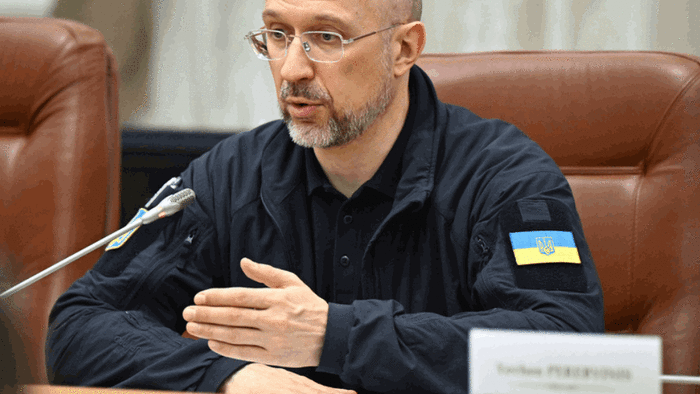In a significant policy shift, Ukraine has decided not to renew its gas transit agreement with Russia, which is set to expire in 2024. This announcement was made by Ukrainian Prime Minister Denys Shmyhal during a joint press conference with Slovak Prime Minister Robert Fico. Shmyhal emphasized that the decision is part of a larger strategy aimed at reducing Russian energy revenues that Ukraine argues are funding the ongoing war. He stated, “Our strategic goal is to impose sanctions on the Russian gas molecule, to deprive the Kremlin of profits from the sale of hydrocarbons, for which the aggressor finances the war.”
The current transit agreement allows Russian gas to flow to Europe via Ukraine, and its termination could significantly alter the energy landscape for several European nations still reliant on these supplies. Shmyhal urged all European countries to abandon Russian oil and gas altogether, underscoring a desire for unity against Russian energy exports. He showed an understanding of the pressing energy needs of Eastern European nations, particularly Slovakia and Hungary, who are still dependent on Russian gas. The Prime Minister indicated that Ukraine hopes for these countries to gradually diversify their energy sources away from Russia, an effort he suggests is crucial for European energy security.
Despite Ukraine’s decision to halt the renewal of the transit deal, Shmyhal reaffirmed Ukraine’s commitment to international obligations, particularly in relation to the European Union (EU) and the Energy Charter Treaty. This signals Ukraine’s intent to maintain cooperation with the EU on energy matters even amidst rising tensions and conflicts regarding energy distribution. However, questions have recently emerged regarding Ukraine’s commitment to these agreements, especially following its blocking of the “Friendship” oil pipeline, which formerly facilitated oil supplies from Russia to Slovakia, Hungary, and Czechia.
This action has disrupted energy supplies and raised alarms about potential crises in Central and Eastern Europe. Governments in these regions have reacted with urgency, calling for the reversal of Ukraine’s decision. Hungarian officials have voiced their concerns regarding the impact this blockade has had on their energy security, with Hungarian Foreign Minister Péter Szijjártó even hinting at potential legal action against Ukraine. Such comments reveal the tension and complexities in energy relations within Europe, which have become increasingly strained due to the war in Ukraine and subsequent energy disruptions.
In the backdrop of these growing challenges, the Hungarian communications director of Fidesz-KDNP, Tamás Menczer, suggested that Ukraine’s energy strategy might have been influenced by external forces, implying involvement from Brussels or American political factions. This perception highlights a broader narrative within Hungary that suggests they are facing punitive measures for supporting peace initiatives, further complicating their energy situation. Meanwhile, the president of Ukrainian energy giant Naftogaz has countered claims of diminished oil supplies, asserting that they have ensured no interruptions, although the veracity of this statement was hotly contested by Hungarian authorities.
As 2024 approaches, the implications of Ukraine’s decision not to extend the gas transit agreement will be closely monitored across Europe, particularly in Eastern European nations that remain heavily dependent on Russian energy supplies. The situation poses significant challenges for regional energy security and underscores the need for countries to explore alternative energy sources and alliances, while also navigating the geopolitical landscape shaped by the ongoing conflict in Ukraine. The unfolding dynamics will likely play a pivotal role in shaping energy policies and international relations in the region moving forward.

